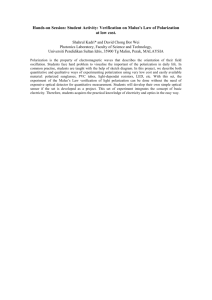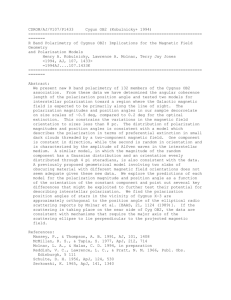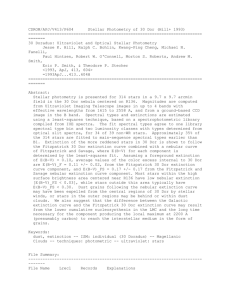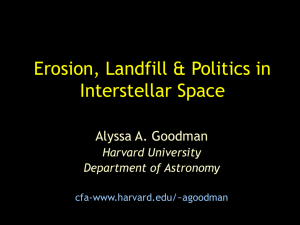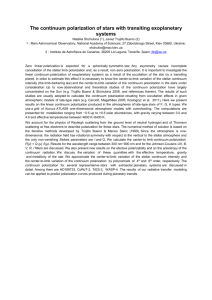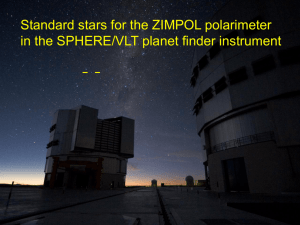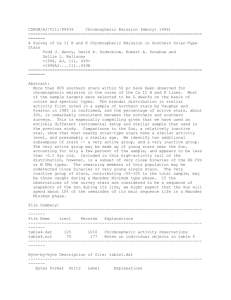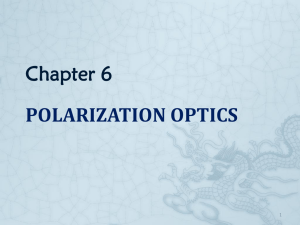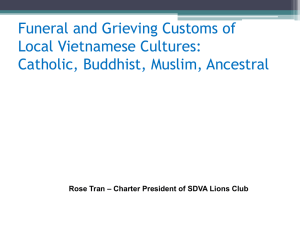Extinction Relation in the 4th Galactic
advertisement
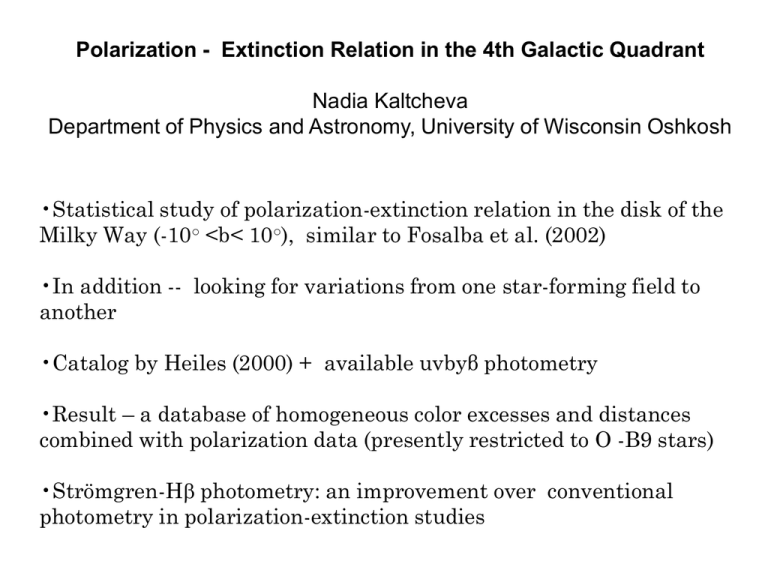
Polarization - Extinction Relation in the 4th Galactic Quadrant Nadia Kaltcheva Department of Physics and Astronomy, University of Wisconsin Oshkosh •Statistical study of polarization-extinction relation in the disk of the Milky Way (-10○ <b< 10○), similar to Fosalba et al. (2002) •In addition -- looking for variations from one star-forming field to another •Catalog by Heiles (2000) + available uvbyβ photometry •Result – a database of homogeneous color excesses and distances combined with polarization data (presently restricted to O -B9 stars) •Strömgren-H photometry: an improvement over conventional photometry in polarization-extinction studies Polarization-Extinction Relation in Bok Globules β Polarization vs. extinction of 19 stars (mainly located in the periphery of CB 3) as presented by Sen et al. (2010) (left) and Piehl, Briley & Kaltcheva (2011) (right). 4th Galactic Quadrant • Nearly 800 O-B9 stars in the latitude range (-10○, 10○) • Average in extinction bins extended for E(B-V)>1 β • Consistency with the relation of Fosalba et al. (2002) up to E(B-V) = 1.6 mag Variations in the extinction vs. polarization relation with longitude Carina Spiral Feature Carina Arm Cru OB1 + HII regions Polarization-extinction relation for stars in Bok globules Object Accepted distance (pc) New distance (pc) CB3 2500 969 112 CB52 1500 Polarization-extinction relation for stars in Bok globules CB54 1500 CB246 140 579 50 918 73 377 51 Piehl, D., Briley, M., Kaltcheva, N., 2011, AN, 332, 159 •Dust grains of constant properties aligned along lines of sight up to 1000 pc. •Relatively uniform geometry for the constant component of the magnetic field (see Jones 2003), with some turbulence or tilt to drop the polarization below the maximum allowed for completely aligned grains.
